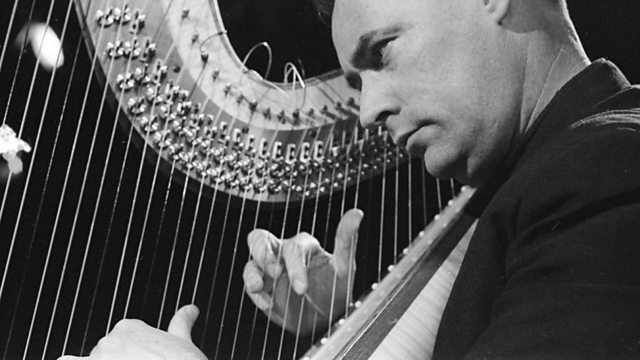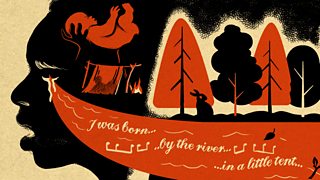A Ceremony of Carols by Benjamin Britten
A composition for voices and harp, written on a cargo ship on the Atlantic in 1942.
In 1942, Benjamin Britten boarded the M.S. Axel Johnson, a Swedish cargo vessel, to make the journey home to England after three years in America. During the voyage, the ship stopped at Halifax, Nova Scotia, where Britten came across a poetry anthology in a bookshop - The English Galaxy of Shorter Poems. In his cabin, he began work on setting some of these poems for voices and harp. Originally conceived as a series of unrelated songs, the piece developed into an extended choral composition for Christmas.
There are some pieces of music we return to at special moments and, for many, Britten's A Ceremony of Carols is a beloved winter piece - "Christmas wouldn't be Christmas without a performance of it" says harpist Sally Pryce, who recalls performing the piece in deepest winter, desperately trying to keep her fingers warm as she prepared to play the first harp notes. Music writer Gavin Plumley tells the story of Britten's wartime voyage home and reflects on Christmases past and present. Matt Peacock remembers a very special performance of the work bringing together professional musicians, choristers and people experiencing homelessness in an Oxford college chapel. Dr Imani Mosley reflects on how the piece has helped her create a winter ritual in sunny Florida and how its meaning has changed since losing her partner. Conductor and composer Graham Ross is Director of Music at Clare College, Cambridge; he takes us deep into Britten's sound world and reflects on the genius of his approach to setting texts and the mastery of his writing for harp and voices. And Johanna Rehbaum remembers the joy of singing the work with the women of her choir, days before giving birth to her son.
Produced in Bristol by Mair Bosworth for 91热爆 Audio
Last on
More episodes
Next
Broadcasts
- Sat 18 Dec 2021 10:3091热爆 Radio 4 FM
- Christmas Eve 2024 23:0091热爆 Radio 4 FM
Why Sam Cooke's 'A Change Is Gonna Come' became a Civil Rights anthem
Podcast
-
![]()
Soul Music
Series about pieces of music with a powerful emotional impact



